Thomas Brown - Lectures on the Philosophy of the Human Mind (Vol. 1 of 3)
Здесь есть возможность читать онлайн «Thomas Brown - Lectures on the Philosophy of the Human Mind (Vol. 1 of 3)» — ознакомительный отрывок электронной книги совершенно бесплатно, а после прочтения отрывка купить полную версию. В некоторых случаях можно слушать аудио, скачать через торрент в формате fb2 и присутствует краткое содержание. Жанр: foreign_antique, foreign_prose, на английском языке. Описание произведения, (предисловие) а так же отзывы посетителей доступны на портале библиотеки ЛибКат.
- Название:Lectures on the Philosophy of the Human Mind (Vol. 1 of 3)
- Автор:
- Жанр:
- Год:неизвестен
- ISBN:нет данных
- Рейтинг книги:5 / 5. Голосов: 1
-
Избранное:Добавить в избранное
- Отзывы:
-
Ваша оценка:
- 100
- 1
- 2
- 3
- 4
- 5
Lectures on the Philosophy of the Human Mind (Vol. 1 of 3): краткое содержание, описание и аннотация
Предлагаем к чтению аннотацию, описание, краткое содержание или предисловие (зависит от того, что написал сам автор книги «Lectures on the Philosophy of the Human Mind (Vol. 1 of 3)»). Если вы не нашли необходимую информацию о книге — напишите в комментариях, мы постараемся отыскать её.
Lectures on the Philosophy of the Human Mind (Vol. 1 of 3) — читать онлайн ознакомительный отрывок
Ниже представлен текст книги, разбитый по страницам. Система сохранения места последней прочитанной страницы, позволяет с удобством читать онлайн бесплатно книгу «Lectures on the Philosophy of the Human Mind (Vol. 1 of 3)», без необходимости каждый раз заново искать на чём Вы остановились. Поставьте закладку, и сможете в любой момент перейти на страницу, на которой закончили чтение.
Интервал:
Закладка:
Thomas Brown
Lectures on the Philosophy of the Human Mind (Vol. 1 of 3)
LECTURE I. – (Introduction.)
Gentlemen,
The subject on which we are about to enter, and which is to engage, I trust, a considerable portion of your attention for many months, is the Philosophy of the Human Mind , – not that speculative and passive philosophy only, which inquires into the nature of our intellectual part, and the mysterious connexion of this with the body which it animates, but that practical science, which relates to the duties, and the hopes, and the great destiny of man, and which, even in analyzing the powers of his understanding, and tracing all the various modifications of which it is individually susceptible, views it chiefly as a general instrument of good – an instrument by which he may have the dignity of co-operating with his beneficent Creator, by spreading to others the knowledge, and virtue, and happiness, which he is qualified at once to enjoy, and to diffuse.
“Philosophy,” says Seneca, “is not formed for artificial show or delight. It has a higher office than to free idleness of its languor, and wear away and amuse the long hours of a day. It is that which forms and fashions the soul, which gives to life its disposition and order, which points out what it is our duty to do, what it is our duty to omit. It sits at the helm, and in a sea of peril, directs the course of those who are wandering through the waves.” “Non est philosophia populare artificium, nec ostentationi paratum; non in verbis sed in rebus est. Nec in hoc adhibetur ut aliqua oblectatione consumatur dies, ut dematur otio nausea. Animum format et fabricat, vitam disponit, actiones regit, agenda et omittenda demonstrat, sedit ad gubernaculum, et per ancipitia fluctuantium dirigit cursum.” Ep. 16.
Such, unquestionably, is the great practical object of all philosophy. If it increase the happiness and virtue of human kind, it must be allowed to have fulfilled, to human beings, the noblest of earthly ends. The greatness of this primary object, however, perhaps fixed too exclusively the attention of the moral inquirers of antiquity, who, in considering man as capable of virtue and happiness, and in forming nice and subtle distinctions as to his supreme good, and the means by which he might attain it, seem almost to have neglected the consideration of his intellectual nature, as an object of mere physical science. Hence it happens, that, while the systems of ancient philosophy exhibit, in many instances, a dignity of moral sentiment as high, or almost as high, as the unassisted reason of man could be supposed to reach, and the defects of which we perhaps discover only by the aid of that purer light, which was not indulged to them, they can scarcely be said to have left us a single analysis of complex phenomena of thought and feeling. By some of them, indeed, especially by the Peripatetics and Stoics, much dialectic subtilty was employed in distinctions, that may seem at first to involve such an analysis; but even these distinctions were verbal, or little more than verbal. The analytical investigation of the mind, in all its complexity of perceptions, and thoughts, and emotions, was reserved to form almost a new science in the comprehensive philosophy of far later years.
If, however, during the flourishing periods of Greek and Roman letters, this intellectual analysis was little cultivated, the department of the philosophy of the mind, which relates to practical ethics, was enriched, as I have said, by moral speculations the most splendid and sublime. In those ages, indeed, and in countries in which no revealed will of heaven had pointed out and sanctioned one unerring rule of right, it is not to be wondered at, that, to those who were occupied in endeavouring to trace and ascertain such a rule in the moral nature of man, all other mental inquiries should have seemed comparatively insignificant. It is even pleasing thus to find the most important of all inquiries regarded as truly the most important, and minds of the highest genius, in reflecting on their own constitution, so richly diversified and adorned with an almost infinite variety of forms of thought, discovering nothing, in all this splendid variety, so worthy of investigation, as the conduct which it is fitting for man to pursue.
But another period was soon to follow, a period in which ages of long and dreary ignorance were to be followed by ages of futile labour, as long and dreary. No beautiful moral speculations were then to compensate the poverty of intellectual science. But morality, and even religion itself, were to be degraded, as little more than technical terms of a cold and unmeaning logic. The knowledge of our mental frame was then, indeed, professedly cultivated with most assiduous zeal; and if much technical phraseology, and much contention, were sufficient to constitute an elaborate science, that assiduous zeal might well deserve to have been rewarded with so honourable a name. But what reasonable hope of a progress truly scientific could be formed, when to treat of the philosophy of mind was to treat of every thing but of the mind and its affections; when some of the most important questions, with respect to it, were, Whether its essence were distinct from its existence? whether its essence therefore might subsist, when it had no actual existence? and what were all the qualities inherent in it as a nonentity? In morals, whether ethics were an art or a science? whether, if the mind had freedom of choice, this independent will be an entity or a quiddity? and whether we should say, with a dozen schoolmen, that virtue is good, because it has intrinsic goodness, or, with a dozen more, that it has this intrinsic goodness, because it is good?
In natural theology, questions of equal moment were contested with equal keenness and subtilty; but they related less to the Deity, of whose nature, transcendent as it is, the whole universe may be considered as in some degree a faint revelation, than to those spiritual ministers of his power, of whose very existence nature affords no evidence, and of whom revelation itself may be said to teach us little but the mere existence. Whether angels pass from one point of space to another, without passing through the intermediate points? whether they can visually discern objects in the dark? whether more than one can exist at the same moment in the same physical point? whether they can exist in a perfect vacuum, with any relation to the absolute incorporeal void? and whether if an angel were in vacuo, the void could still truly be termed perfect ? – such, or similar to these were the great inquiries in that department of Natural Theology, to which, as to a separate science, was given the name of Angelography : and of the same kind were the principal inquiries with respect to the Deity himself, not so much an examination of the evidence which nature affords of his self-existence, and power, and wisdom, and goodness, those sublime qualities which even our weakness cannot contemplate without deriving some additional dignity from the very greatness which it adores, as a solution of more subtile points, whether he exist in imaginary space as much as in the space that is real? whether he can cause a mode to exist without a substance? whether, in knowing all things, he know universals, or only things singular? and whether he love a possible unexisting angel better than an actually existing insect?
“Indignandum de isto, non disputandum est.” – “Sed non debuit hoc nobis esse propositum arguta disserere, 1 1 Argutias serere. Lect. var.
et philosophiam in has augustias ex sua majestate detrahere. Quanto satius est, ire aperta via et recta, quam sibi ipsi flexus disponere, quos cum magna molestia debeas relegere?” 2 2 Seneca, Ep. 102.
– “Why waste ourselves,” says the same eloquent moralist; “why torture and waste ourselves in questions, which there is more real subtilty in despising than in solving?” —
Интервал:
Закладка:
Похожие книги на «Lectures on the Philosophy of the Human Mind (Vol. 1 of 3)»
Представляем Вашему вниманию похожие книги на «Lectures on the Philosophy of the Human Mind (Vol. 1 of 3)» списком для выбора. Мы отобрали схожую по названию и смыслу литературу в надежде предоставить читателям больше вариантов отыскать новые, интересные, ещё непрочитанные произведения.
Обсуждение, отзывы о книге «Lectures on the Philosophy of the Human Mind (Vol. 1 of 3)» и просто собственные мнения читателей. Оставьте ваши комментарии, напишите, что Вы думаете о произведении, его смысле или главных героях. Укажите что конкретно понравилось, а что нет, и почему Вы так считаете.
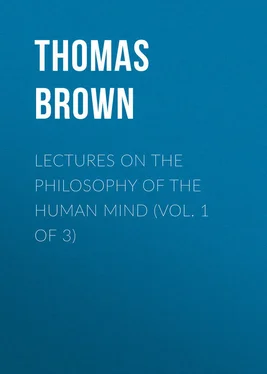


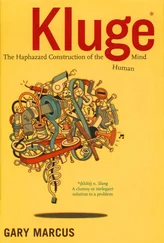

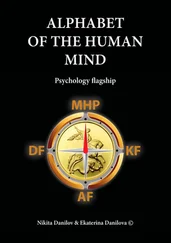


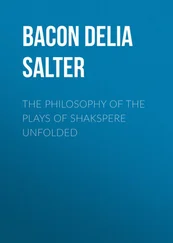
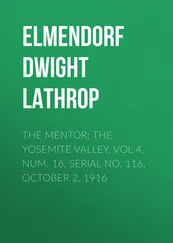


![Anne Blunt - A Pilgrimage to Nejd, the Cradle of the Arab Race. Vol. 1 [of 2]](/books/749489/anne-blunt-a-pilgrimage-to-nejd-the-cradle-of-the-thumb.webp)